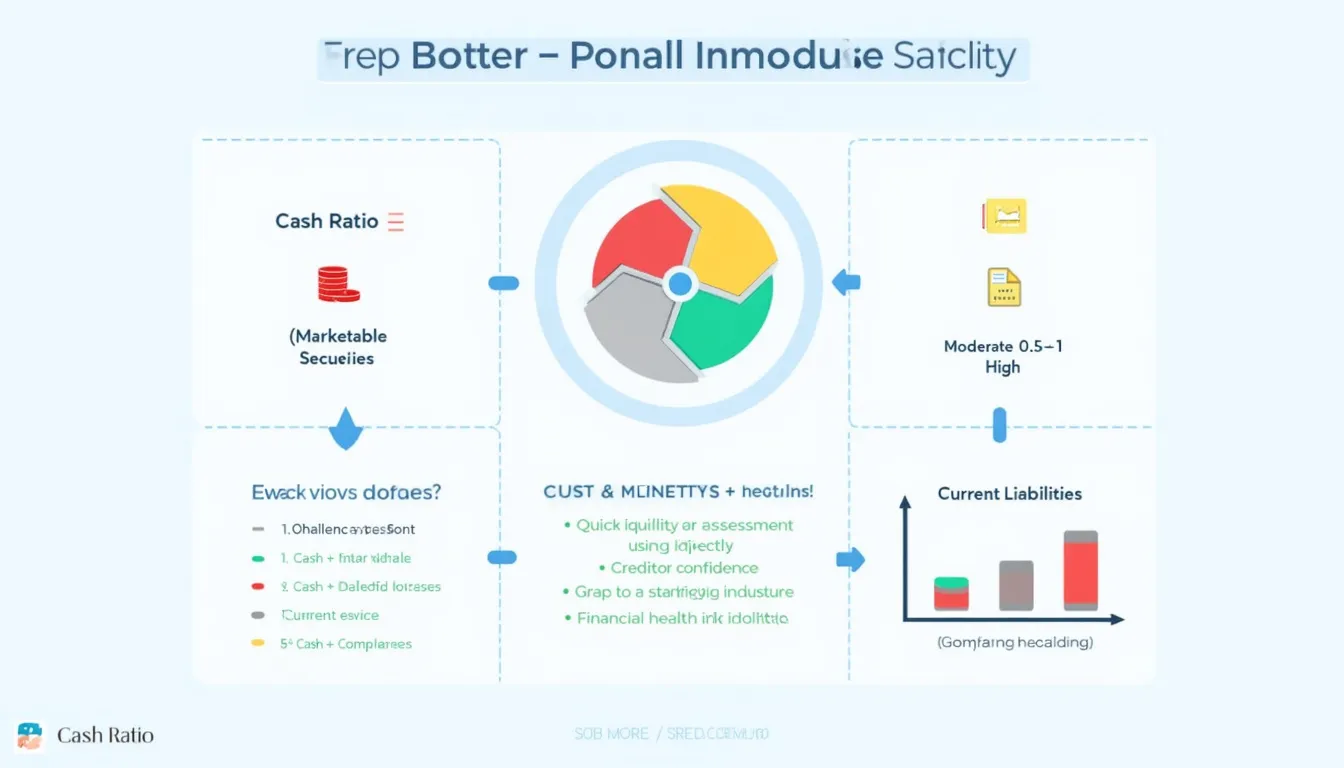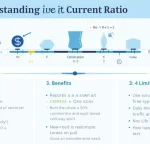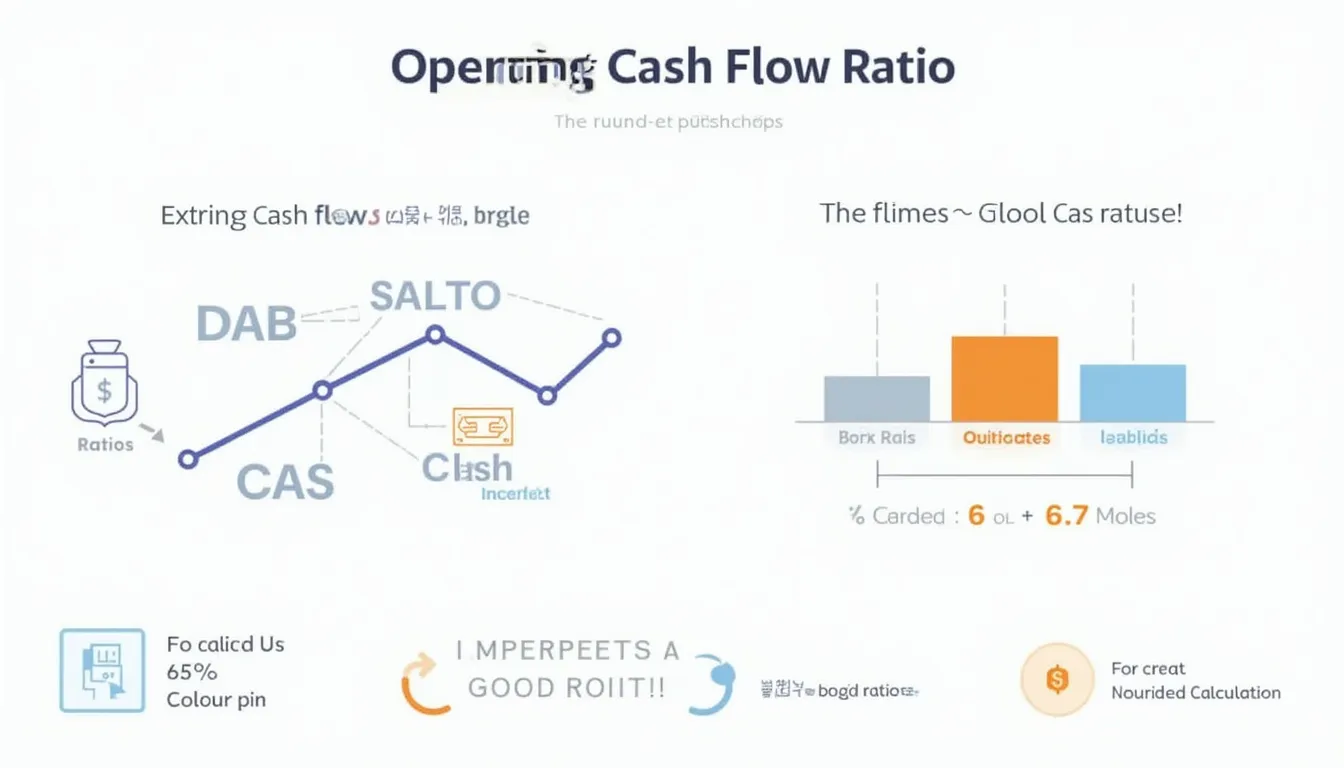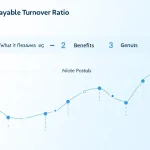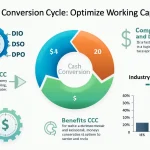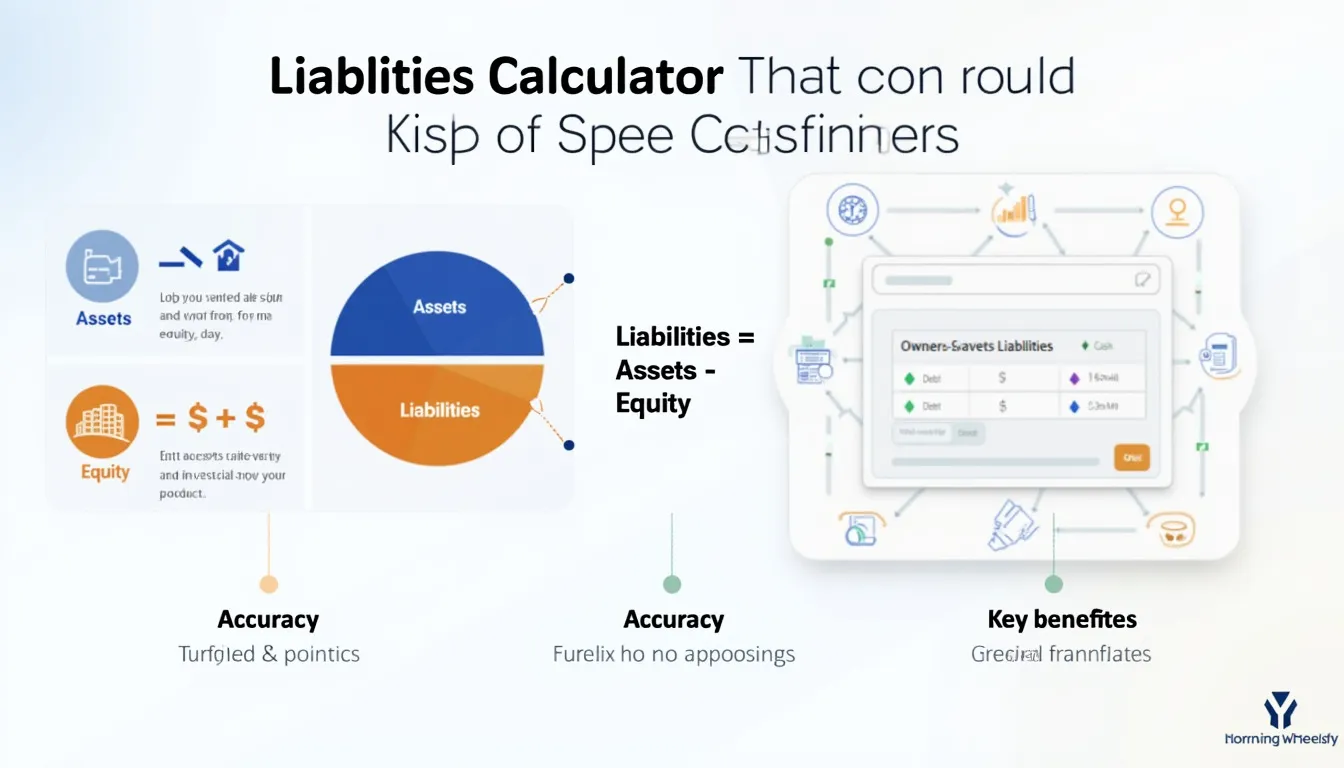Cash Ratio Calculator
Is this tool helpful?
How to use the tool
- Fill in Cash: Type the total cash balance. Example inputs: $120,000 or $2,100,000.
- Add Marketable Securities: Enter the value of T-bills, money-market funds, etc. Example inputs: $80,000 or $950,000.
- Enter Current Liabilities: Provide all obligations due within 12 months, such as accounts payable or short-term loans. Example inputs: $400,000 or $1,500,000.
- Press “Calculate”: The page shows your cash ratio and a short interpretation.
Formula
$$\text{Cash Ratio}= rac{\text{Cash}+ \text{Marketable Securities}}{\text{Current Liabilities}}$$
Worked example
- Cash = $120,000
- Marketable Securities = $80,000
- Current Liabilities = $400,000
$$\text{Cash Ratio}= rac{120,000+80,000}{400,000}= rac{200,000}{400,000}=0.50$$
A ratio of 0.50 means you hold 50 cents of cash or near-cash for every dollar due within a year.
Quick-Facts
- Typical benchmark range: 0.2 – 1.0 depending on industry (CFI, 2023).
- Cash and equivalents must be convertible within 90 days under U.S. GAAP (FASB ASC 305, 2022).
- S&P 500 non-financial median cash ratio ≈ 0.40 (Morningstar, 2023).
- A ratio > 1.5 may indicate idle capital that could be reinvested (Investopedia, 2023).
FAQ
What is a good cash ratio?
Most analysts call 0.5-1.0 “comfortable”; it covers half to all short-term debts without excess idle funds (CFI, 2023).
Why exclude inventory and receivables?
Inventory may take months to sell, and receivables depend on customer payment; neither meets the “immediate” liquidity test (SEC Staff Accounting Bulletin 104, 2022).
How often should I run the calculation?
Quarterly is standard, but monthly reviews suit firms with volatile cash flows or seasonal sales (KPMG Working Capital Survey 2022).
Does a ratio above 1.0 guarantee financial health?
No. Excess cash can erode returns; management should balance liquidity against growth investments (Damodaran, 2023).
Can the ratio be negative?
Yes—if cash plus securities are smaller than zero due to overdrafts, the ratio turns negative, highlighting acute liquidity stress (EY Liquidity Risk Guide 2021).
How does it differ from the quick ratio?
The quick ratio adds accounts receivable to the numerator, so it’s less strict and usually higher for the same firm (Investopedia, 2023).
What raises the cash ratio quickly?
Collect receivables faster, secure short-term credit lines, or sell redundant assets for cash (“Liquidity Management”, IMF Handbook 2022).
Is the tool suitable for nonprofits?
Yes—liquidity principles apply universally; nonprofits track near-cash assets to meet grant obligations (FASB ASU 2016-14, 2017).
Important Disclaimer
The calculations, results, and content provided by our tools are not guaranteed to be accurate, complete, or reliable. Users are responsible for verifying and interpreting the results. Our content and tools may contain errors, biases, or inconsistencies. Do not enter personal data, sensitive information, or personally identifiable information in our web forms or tools. Such data entry violates our terms of service and may result in unauthorized disclosure to third parties. We reserve the right to save inputs and outputs from our tools for the purposes of error debugging, bias identification, and performance improvement. External companies providing AI models used in our tools may also save and process data in accordance with their own policies. By using our tools, you consent to this data collection and processing. We reserve the right to limit the usage of our tools based on current usability factors.
